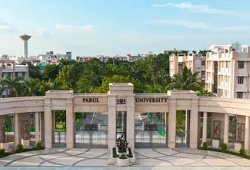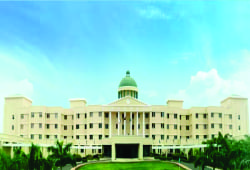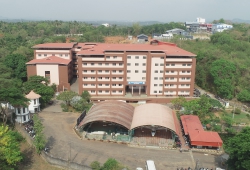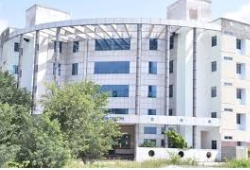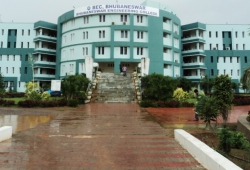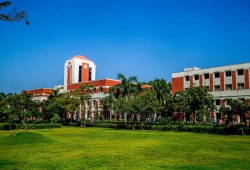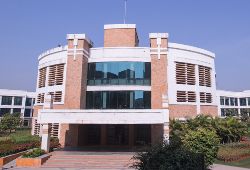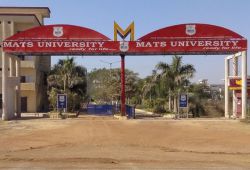Chennai is the capital of Tamil Nadu. It is the largest tenth Indian state by area and sixth largest Indian state by population and it is also the second-largest state by the economy in India. Greatest attraction of Tamil Nadu is magnificent temples, several hill stations, beaches, resorts, and wildlife, people of Tamil Nadu are very hospitable and welcome the tourists and visitors uniquely and warmly, these are the specialty of Tamil Nadu and many more. It is one of the best places for education here you can find top Aeronautical engineering colleges, top schools, institutes, etc. Tamil Nadu is the safe and secure place. It is popular for IIT and for being an IT and industrial hub as well as choosing Aeronautical colleges in Tamilnadu is an excellent choice for building your career in Aeronautical engineering.
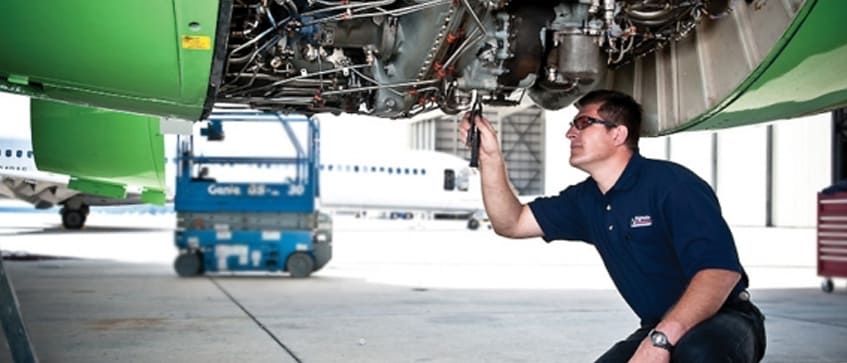
Best Aeronautical Engineering Colleges in Tamilnadu
Students who have a strong interest in aviation can enroll in some of the best colleges for aeronautical engineering in Tamilnadu, a state with a diverse population. These colleges are highly regarded for both their emphasis on practical training and their academic excellence. Aeronautical engineering colleges in Tamilnadu offer a strong foundation for a successful career in aviation and aerospace, regardless of your career goals.
Aeronautical Engineering Course Fees in Tamil Nadu
Let's explore the Aeronautical Engineering course fees in Tamilnadu based on degree levels:
Diploma in Aeronautical Engineering
- Aeronautical engineering diploma programs are frequently more reasonably priced and provide a great foundation for those just starting out in the industry. Depending on the institution, these programs usually last one to two years and cost between INR 40,000 and INR 1,00,000.
Bachelor's Degree in Aeronautical Engineering
- A bachelor's degree is a common option for those seeking a thorough education in aeronautical engineering. Usually, the program lasts four years. In Tamil Nadu, especially at prestigious institutions, fees can range from INR 1,00,000 to INR 4,00,000 or more.
Master's Degree in Aeronautical Engineering
- People who want to specialize and progress in their careers frequently enroll in Master's programs in Aeronautical Engineering. Depending on the reputation of the institution, these programs can cost anywhere from INR 1,50,000 to INR 6,00,000 and usually last for two years.
Scholarships and Financial Aid
- As previously stated, financial aid and scholarships can play a significant role in lessening the financial load. In Tamil Nadu, a large number of public and private institutions provide grants and scholarships to worthy students. By looking into and applying for these opportunities, you can lower the cost of your education.
Eligibility Criteria for Aeronautical Engineering Colleges in Tamilnadu
An admission at this educational institution requires satisfying particular requirements for qualification. The following section contains the enrollment requirements specific for students interested in aeronautical engineering. Admission requirements for aeronautical engineering colleges in Tamilnadu have the following conditions:
- Academic Qualifications: Successful completion of the 10+2 examination with a strong foundation in Physics, Chemistry, and Mathematics.
- Entrance Examinations: Entrance examination success in any combination of JEE Main, JEE Advanced, AME CET or state-level engineering entrance tests.
- Minimum Aggregate Marks: Applicants need to achieve at least 50% or above in the necessary qualifying examination aggregate scores.
- Additional Entrance Exams: The individual institutions might conduct additional entrance examinations which stand as mandatory requirements for admission to certain colleges.
- Age and Nationality Requirements: Students seeking admission must comply with age restrictions as well as nationality rules present in particular colleges.
Aeronautical Engineering Campus Facilities in Tamil Nadu
For practical training and research, aeronautical engineering depends on specialized infrastructure and facilities. The facilities at the aeronautical colleges in Tamilnadu will be examined in this article. These universities provide excellent instruction along with state-of-the-art facilities for hands-on learning. These universities offer cutting-edge campus facilities in Tamilnadu, a center for the Indian aerospace sector.
- Cutting-Edge Laboratories: The new laboratories feature comprehensive facilities that introduce academic programs about aviation technology through wind tunnels and material-testing and flight-simulation devices.
- Aircraft Maintenance Hangars: Students can obtain hands-on experience in aircraft maintenance and repair in hangars on campus.
- Rich Library Resources: Libraries are well-stocked with books, research papers, and online resources for research.
- Aviation Workshops: The workshops give students access to build and reconstruct aircraft parts through their available tools and equipment.
- Computer Labs: The computer laboratories have access to programming tools that include aerodynamic simulation software along with engineering project applications.
- Interactive Classrooms: The modern educational environment includes interactive classrooms that use audio-visual aids to teach students.
- Research Centers: These facilities are leading the way in innovative space research. Students can work on innovative projects that push the limits of aviation innovation and technology.
- Hostel Facilities: Accommodations on campus guarantee security and a feeling of belonging.
- Sports and Recreation: Sports fields, gyms, and cultural clubs provide students with a well-rounded lifestyle.
Aeronautical Engineering Colleges Admission Process in Tamil Nadu:
Students who want to study aeronautical engineering at a prestigious Tamilnadu college need to complete particular admission protocols. This guide will explain the entire admission procedure as well as all necessary requirements. The admission process through AME CET (Aircraft Maintenance Engineering Common Entrance Test) at aeronautical engineering colleges in Tamilnadu entails the following steps:
- Application: Candidates must start their admission process by completing the AME CET application form which requires specified data input.
- Entrance Exam: AME CET stands as the required examination for applicants to achieve through tests that measure their mastery of aircraft maintenance engineering principles.
- Counseling: Eligible candidates can opt for college enrollment based on their AME CET rank position after result declarations by attending counseling sessions that present available seats at different institutions.
- Document Verification: Candidates participating in this counseling must supply their educational documents alongside AME CET result cards and identification proof materials.
- Seat Allotment: Uniform seat distribution for applicants takes place according to their submitted choices and their demonstrated skills from the AME CET examination.
- Fee Payment: In order to finalize their college admission students required to complete payment of appropriate fees to the chosen institution.
- Reporting to College: The students who gained admission by passing AME CET need to appear before their designated colleges during specified dates for completion of admission procedures before starting their aeronautical engineering studies.
Aeronautical Engineering Entrance Exam in India:
Standardized entrance tests exist for aeronautical engineering programs to judge prospective students seeking admission to aeronautical engineering degree programs. Aeronautical engineering programs at different colleges and universities use these admission tests as their essential criteria for entry. Aeronautical engineering courses in India accept candidates through multiple significant entrance examinations that include:
- Joint Entrance Examination (JEE) Main: JEE Main evaluates national-level candidates through assessment of their knowledge in Physics Chemistry and Mathematics subjects. Engineering colleges that operate nationally as well as institutions located in Tamil Nadu use JEE Main scores to evaluate eligible candidates for their admission process.
- Joint Entrance Examination (JEE) Advanced: The admission entrance to JEE Advanced stands as the subsequent stage following JEE Main qualification. Students use this standardized exam for enrollment into the elite Indian Institutes of Technology (IITs) that provide aeronautical engineering courses.
- Aircraft Maintenance Engineering Common Entrance Test (AME CET): AME CET was created exclusively to grant admissions into aircraft maintenance engineering courses which share similarities with aeronautical engineering thus admitting students throughout Tamil Nadu and the rest of India.
- State-Level Engineering Entrance Exams: The entrance exams carried out by various Indian states permit students to access aeronautical engineering programs at educational institutions located within their state boundaries.
Download Brochure for Aeronautical Engineering Colleges in Tamilnadu:
Explore the countless opportunities in the field of aeronautics and embark on your journey to the skies. Download the comprehensive brochure to gain a full understanding of Tamil Nadu's Aeronautical Engineering Colleges. This comprehensive guide offers crucial information about the best universities, curriculum, prerequisites, admissions processes, and employment opportunities in the aerospace sector. This brochure will assist you in making well-informed decisions whether your career goals are to design aircraft, work in aviation technology, or support space exploration. Today, start down the path to a thrilling and fulfilling career in aerospace!
Specializations in Aeronautical Engineering:
Aeronautical engineering is a multidisciplinary field that encompasses various specializations, allowing students to tailor their education to specific areas of interest within the aerospace industry. Aeronautical engineering colleges in Tamilnadu offer a range of specialized programs to cater to the diverse demands of the aviation and aerospace sectors. Here, we explore some of the key specializations available to students at these institutions:
- Aircraft Design and Manufacturing: This specialization focuses on the creation of aircraft, covering aspects like aerodynamics, structural design, materials, and manufacturing processes. Students gain expertise in designing efficient and safe aircraft.
- Aerospace Propulsion: Aerospace propulsion deals with aircraft engines, rockets, and propulsion systems. Students learn the principles of propulsion, engine design, and the mechanics of flight.
- Avionics and Control Systems: Avionics is all about the electronic systems on board aircraft, including communication, navigation, and flight control. This specialization delves into the technology that keeps aircraft safe and efficient.
- Aircraft Maintenance and Repair: Professional degree holders in this specialization conduct aircraft maintenance while inspecting and repairing aircraft. The training develops aircraft professionals who maintain absolute expertise in aircraft safety standards to become essential contributors within the aviation sector.
- Space Technology and Exploration: With the increasing interest in space exploration, this specialization delves into spacecraft design, satellite technology, and space mission planning. Taking on projects for satellites in addition to space missions and interplanetary exploration is something students often find themselves working on at this field.
- Aeronautical Research and Development: This specialization directs its focus toward new research advances within the field of aeronautics for individuals who want to research. Students work on assignments which extend aerospace technology limits.
- Unmanned Aerial Vehicles (UAVs) and Drones: The recent industry development of UAVs and drones led to the creation of this specialization where students learn about designing and operating unmanned aerial vehicles for surveillance and delivery and data collection purposes.
- Aerospace Management: Students who want to work in aviation business operations should choose aerospace management. Students learning about aviation operations and airline management and aviation marketing study this specialization.
Higher Qualifications in Aeronautical Engineering:
Aeronautical engineering stays dynamic which makes pursuing higher qualifications essential for career advancement as well as specialization or research-oriented work. These represent the higher qualifications available to an aeronautical engineer:
- Master's in Aeronautical Engineering (M. Tech/MS): A postgraduate degree in aeronautical engineering allows professionals to delve deeper into the subject, specializing in areas like aerodynamics, propulsion systems, or structural design. It's an excellent choice for those aiming for more technical roles or research positions.
- Doctor of Philosophy (Ph.D.) in Aeronautical Engineering: Ph.D. studies in aeronautical engineering become an excellent pathway for research-oriented individuals to create major developments in their field. Higher positions within the aerospace sector and academia and research activities become attainable with such qualifications.
- Master of Business Administration (MBA): The combination of technical expertise with an MBA creates new career possibilities for aerospace industry management while adding substantial leadership opportunities. Aeronautical engineers who possess business skills create high value by handling aerospace projects while making crucial strategic decisions.
- Certifications and Licenses: Aeronautical engineers pursue additional certifications and licenses that include licensed aircraft maintenance engineer and specific software and aerospace technology certification.
- Short-Term Courses and Workshops: Industry organizations together with academic institutions organize short-term courses and workshops and seminars that aeronautical engineers can use to learn about the most current developments in their field.
- Specialized Master's Programs: Some universities offer specialized master's programs in areas like aerospace management, aviation safety, or space technology, providing a well-rounded education with a specific focus.
- Online Courses and Massive Open Online Courses (MOOCs): The platforms Coursera, edX, and Udemy deliver multiple aerospace-related MOOCs and online courses which students can access. People can develop new knowledge and skills through versatile and economical educational resources.
Top Recruiters for Aeronautical Engineering Graduates:
The list of top recruiters allows you to predict businesses that could hire you in the future. The article discusses which organizations currently recruit Tamil Nadu-based aeronautical engineering graduates. Indian job markets seek graduates of aeronautical engineering because these professionals specialize in aerospace technology and aviation. Certain firms regularly recruit graduates who obtained their degrees in aeronautical engineering.
- Indian Space Research Organization (ISRO): The Indian Space Research Organization generates fascinating prospects for employees who want to develop satellites and manage rocket systems as well as engage in space investigation missions.
- Hindustan Aeronautics Limited (HAL): The aerospace and defense company HAL actively recruits aeronautical engineers to support aircraft along with helicopter development projects.
- Defense Research and Development Organization (DRDO): Aeronautical engineers within the Defence Research and Development Organisation conduct defense technology projects dedicated to creating missiles and building avionics systems.
- Bharat Heavy Electricals Limited (BHEL): The power generation equipment of BHEL requires aeronautical engineers for gas turbine work.
- National Aeronautics Laboratory (NAL): The research activities at NAL concentrate on aerospace technology while their engineering team supports aircraft development and wind tunnel experiments and aerodynamic investigations.
- Air India: Aeronautical engineers at the national carrier maintain aircraft systems along with undertaking engineering duties for flight safety purposes.
- Private Aerospace Companies: Through their aerospace divisions Tata Advanced Systems L&T and Mahindra Aerospace offer different professional options for aerospace technology and manufacturing work.
- Aviation Companies: Safety and maintenance roles at IndiGo and SpiceJet along with Vistara are filled by aeronautical engineers.
- Research and Development Centers: Aeronautical engineering graduates can perform innovative research at institutions of higher education as well as research centers and independent organizations.
- Consulting and Engineering Firms: When it comes to engineering solutions for the aviation and aerospace industry Wipro alongside TCS and Infosys operate aerospace divisions.
Aeronautical Engineering Course Syllabus
Future students need to understand their academic textbooks before enrollment. The typical content of aeronautical engineering studies in Indian institutions is examined in this overview along with most studied subjects. The dynamic field of aeronautical engineering handles the complete design process and development together with the maintenance of aircraft and spacecraft vehicles. Tamil Nadu serves as a major hub for the Indian aerospace industry while multiple premium colleges establish their presence in this region to deliver aeronautical engineering programs. The article gives an introduction to the curriculum at Tamilnadu's aeronautical engineering colleges by explaining the educational path students will experience.
First Year Courses:
- Mathematics and Applied Mathematics:
- Calculus
- Linear Algebra
- Differential Equations
- Probability and Statistics
- Physics:
- Mechanics
- Electromagnetism
- Waves and Optics
- Engineering Mechanics:
- Statics and Dynamics
- Kinematics and Kinetics
- Equilibrium of Structures
- Engineering Graphics:
- Geometrical drawing
- Projections
- Sectional views
Second Year Courses:
- Aerodynamics:
- Fundamental principles
- Compressible and incompressible flows
- Boundary layers
- Fluid Mechanics:
- Fluid properties and behavior
- Fluid statics and dynamics
- Control volume analysis
- Materials Science and Engineering:
- Properties of materials
- Material selection for aerospace applications
- Heat treatment and material testing
- Thermodynamics:
- Basic concepts
- Laws of thermodynamics
- Gas dynamics
Third Year Courses:
- Aircraft Structures:
- Structural analysis
- Stress and strain analysis
- Finite element analysis
- Aircraft Propulsion:
- Gas turbine engines
- Jet propulsion
- Propeller theory
- Aircraft Design and Manufacturing:
- Design process
- Manufacturing techniques
- Composite materials in aircraft design
- Avionics and Control Systems:
- Avionics components and systems
- Aircraft control systems
- Flight control systems
Fourth Year Courses:
- Flight Mechanics and Aircraft Performance:
- Aircraft performance parameters
- Stability and control
- Flight testing
- Aircraft Maintenance and Repair:
- Maintenance practices
- Aircraft inspection and repair
- Regulatory compliance
- Aerospace Propulsion Systems:
- Advanced propulsion systems
- Rocket propulsion
- Hybrid propulsion
- Project Work and Internships:
- Final year project
- Industry internships
Aeronautical Engineering Course Duration
It takes four academic years to complete Bachelor-level aeronautical engineering college programs. That's eight semesters. Students examine many subjects throughout their educational period. Aeronautical engineering students gain expertise in primitive engineering principles while mastering aircraft movements and motor proficiency in addition to selecting materials and aircraft construction methods. Aeronautical engineering education spans four years to develop competent engineer professionals. Students acquire all necessary knowledge to practice in aerospace fields. As part of their training they assist in aircraft and spacecraft development and maintenance processes.



